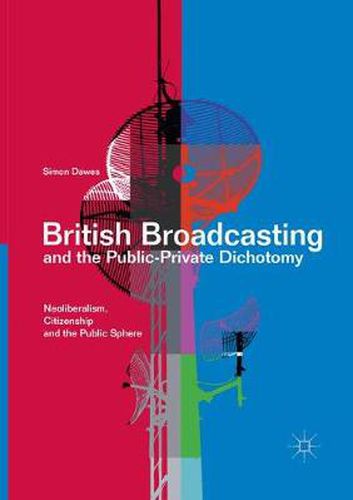Readings Newsletter
Become a Readings Member to make your shopping experience even easier.
Sign in or sign up for free!
You’re not far away from qualifying for FREE standard shipping within Australia
You’ve qualified for FREE standard shipping within Australia
The cart is loading…






This text offers a theoretical engagement with the ways in which private and public interests - and how those interests have been understood - have framed the changing rationale for broadcasting regulation, using the first century of UK broadcasting as a starting point. Unlike most books on broadcasting, this text adopts an explicitly Foucauldian and genealogical perspective in its account of media history and power, and unpicks how the meanings of terms such as ‘public service’ and ‘public interest’, as well as ‘competition’ and ‘choice’, have evolved over time. In considering the appropriation by broadcasting scholars of concepts such as neoliberalism, citizenship and the public sphere to a critical account of broadcasting history, the book assesses their appropriateness and efficacy by engaging with interdisciplinary debates on each concept. This work will be of particular significance to academics and students with an interest in media theory, history, policy and regulation, as well as those disposed to understanding as well as critiquing the neoliberalization of public media.
$9.00 standard shipping within Australia
FREE standard shipping within Australia for orders over $100.00
Express & International shipping calculated at checkout
This text offers a theoretical engagement with the ways in which private and public interests - and how those interests have been understood - have framed the changing rationale for broadcasting regulation, using the first century of UK broadcasting as a starting point. Unlike most books on broadcasting, this text adopts an explicitly Foucauldian and genealogical perspective in its account of media history and power, and unpicks how the meanings of terms such as ‘public service’ and ‘public interest’, as well as ‘competition’ and ‘choice’, have evolved over time. In considering the appropriation by broadcasting scholars of concepts such as neoliberalism, citizenship and the public sphere to a critical account of broadcasting history, the book assesses their appropriateness and efficacy by engaging with interdisciplinary debates on each concept. This work will be of particular significance to academics and students with an interest in media theory, history, policy and regulation, as well as those disposed to understanding as well as critiquing the neoliberalization of public media.